Widely acclaimed for its health benefits and dietary versatility, konjac noodles are gaining prominence in the world of health-conscious eaters and ketogenic dieters.
Derived from the konjac plant, these noodles are not only a dietary alternative, but also a way to maintain a healthier lifestyle.
What are Konjac Noodles?
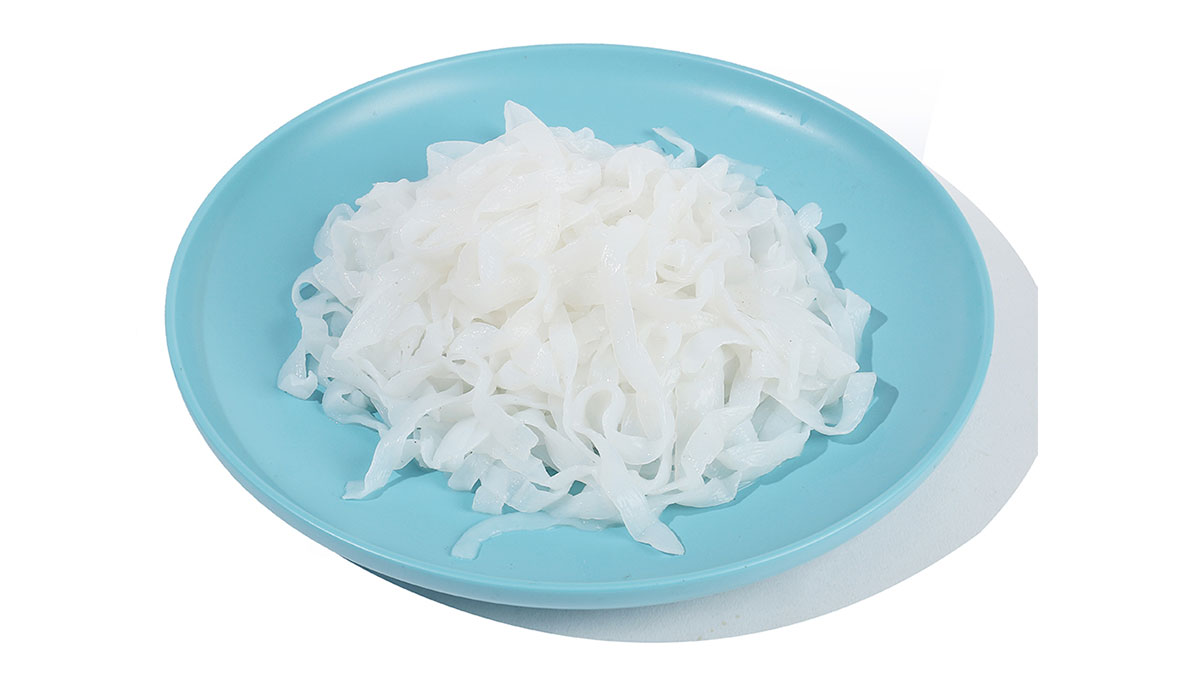
Konjac noodles are made from the root of the konjac plant, also known as the white waterfall or konnyaku flour. The main ingredient in konjac noodles is glucomannan, a fiber with health benefits. These noodles are often praised for being low in calories and carbohydrates, making them an ideal choice for weight management and ketogenic diets.
Health Benefits of Konjac Noodles

1. Promotes Weight Loss: Konjac noodles are extremely low in calories, which helps in creating a calorie deficit to aid weight loss. Their high fiber content also increases satiety, reducing overall calorie intake.
2. Regulates Blood Sugar Levels: The glucomannan fiber helps slow down glucose absorption, which stabilizes blood sugar levels and prevents spikes after meals.
3. Lowers Cholesterol Levels: Studies have shown that glucomannan fiber can reduce LDL cholesterol levels, contributing to better heart health.
4. Improves Digestive Health: As a soluble fiber, glucomannan enhances gut health by promoting regular bowel movements and preventing constipation.
Potential Side Effects of Konjac Noodles
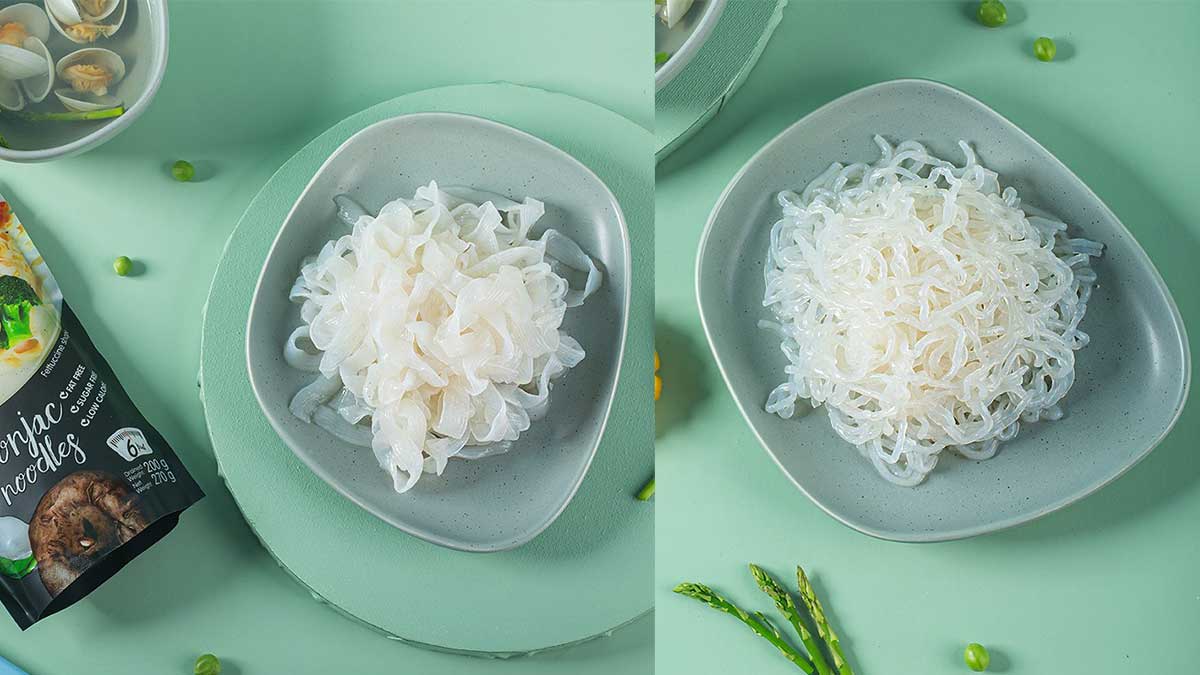
While Konjac noodles offer numerous health benefits, they are not without their side effects, which are important to consider for safe consumption.
1. Gastrointestinal Issues: Overconsumption can lead to bloating, diarrhea, and other digestive discomfort due to its high fiber content.
2. Choking Hazard: These noodles can absorb significant amounts of water and expand, posing a choking risk if not properly chewed.
3. Nutrient Absorption: Being high in fiber, they can interfere with the absorption of certain medications and nutrients, necessitating timed consumption.
4. Allergic Reactions: Though rare, some individuals may experience allergic reactions to glucomannan.
5. Fermentation of Fiber: Soluble fibers like glucomannan are fermented by bacteria in the large intestine. This fermentation can produce gas as a byproduct.
How to Safely Incorporate Konjac Noodles Into Your Diet
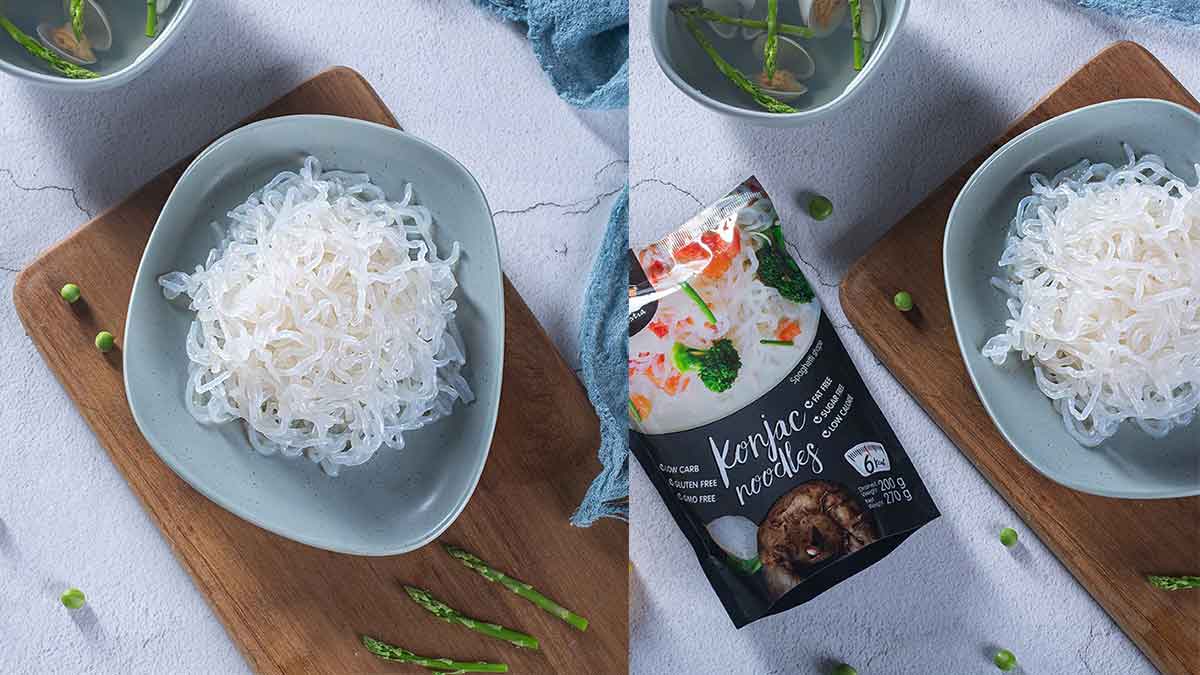
To safely enjoy the benefits of Konjac noodles, consider the following tips:
Hydrate Adequately: Drink plenty of water throughout the day as konjac noodles expand and can absorb liquids in your stomach.
Introduce Slowly: Gradually add konjac noodles to your diet to allow your digestive system to adjust to the high fiber content.
Proper Preparation: Always follow the preparation instructions on the package, ensuring they are well-cooked and thoroughly chewed.
Combine with Other Fibers: Mix konjac noodles with other fibrous foods that encourage bowel movements, such as leafy greens or cruciferous vegetables, to balance the meal.
Konjac noodles can support digestive health, but they can cause constipation if not consumed with sufficient water and if introduced too rapidly into the diet. It’s always a good practice to monitor how your body responds to new dietary changes and adjust accordingly.
Conclusion
Konjac noodles are more than just an alternative pasta—they are a healthful option that supports weight management, stabilizes blood sugar levels, lowers cholesterol, and improves digestive health.
However, like any food, they should be consumed in moderation and with proper preparation to avoid any potential side effects.
By incorporating konjac noodles into your diet, you can enjoy a plethora of health benefits while indulging in your favorite dishes with a healthier twist.
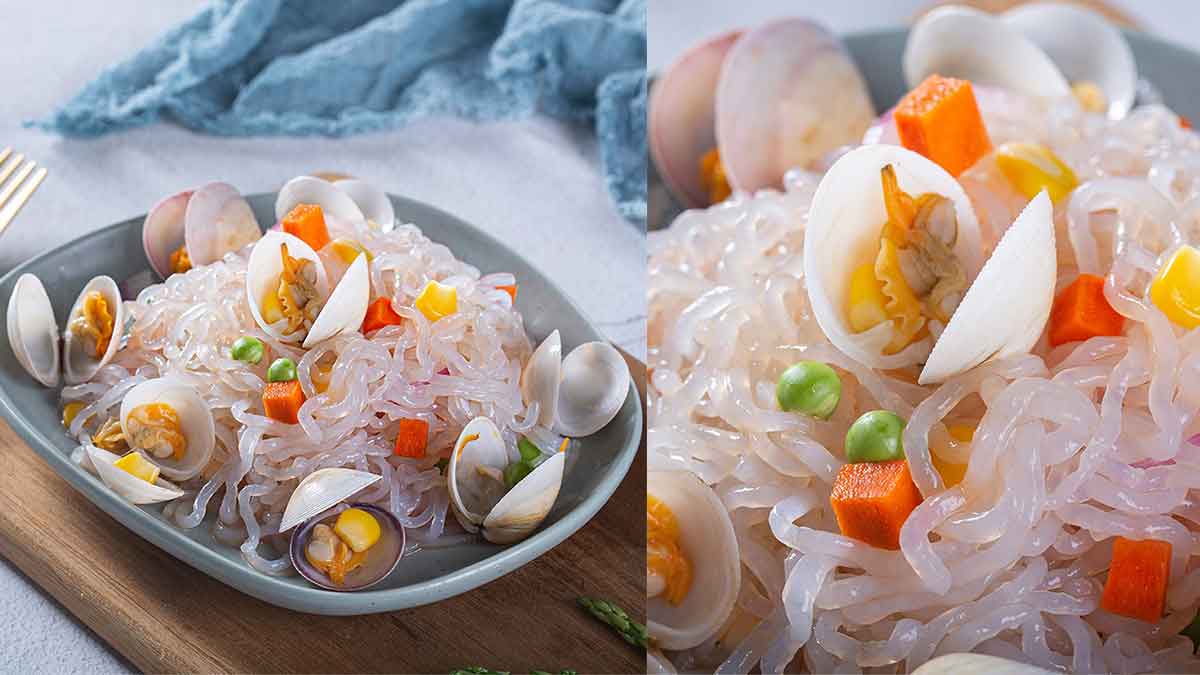
FAQ
Do konjac noodles cause gas?
Yes, konjac noodles can cause gas in some individuals.
This is primarily due to the high content of glucomannan fiber in the noodles.
While glucomannan is beneficial for many aspects of health, such as weight management and blood sugar control, it is also a soluble fiber that can ferment in the gut.
This fermentation process can produce gas and lead to bloating, especially if your body is not accustomed to high-fiber diets.
Can konjac noodles cause constipation?
Konjac noodles, made from glucomannan—a highly absorbent, soluble fiber derived from the konjac plant—are generally known to aid in digestion and promote regular bowel movements.
However, they can potentially lead to constipation if not consumed properly.
Are konjac noodles gluten free?
Yes, konjac noodles are gluten-free.
They are made from the root of the konjac plant, which does not contain gluten, making them a safe option for individuals with celiac disease or gluten sensitivities.
This attribute also allows konjac noodles to be a popular choice in gluten-free diets, providing a noodle alternative that doesn’t compromise texture or taste.
Are konjac noodles keto friendly?
Yes, konjac noodles are keto-friendly.
They are an excellent choice for anyone following a ketogenic diet due to their extremely low carbohydrate content.
Konjac noodles are an excellent addition to a ketogenic diet, helping to diversify meals while keeping carb intake minimal.
Can you fry konjac noodles?
Yes, you can fry konnyaku noodles and they make a delicious accompaniment to a variety of dishes.
Frying helps improve their texture and flavor, making them more similar to traditional noodles.
Deep-frying konjac noodles turns them into a tasty part of a stir-fry or any dish that might use regular noodles, providing a low-calorie and low-carb alternative that’s perfect for a variety of dietary needs.
Can dogs eat konjac noodles?
It’s generally not recommended to feed konjac noodles to dogs.
While they are not toxic, there are a few reasons why konjac noodles might not be suitable for canine consumption: high fiber content, choking hazard, and nutritional value.
If you’re looking to diversify your dog’s diet or want to include treats, it’s best to stick with foods that are known to be safe and nutritious for dogs.
Some healthy alternatives include: Cooked lean meats and vegetables.

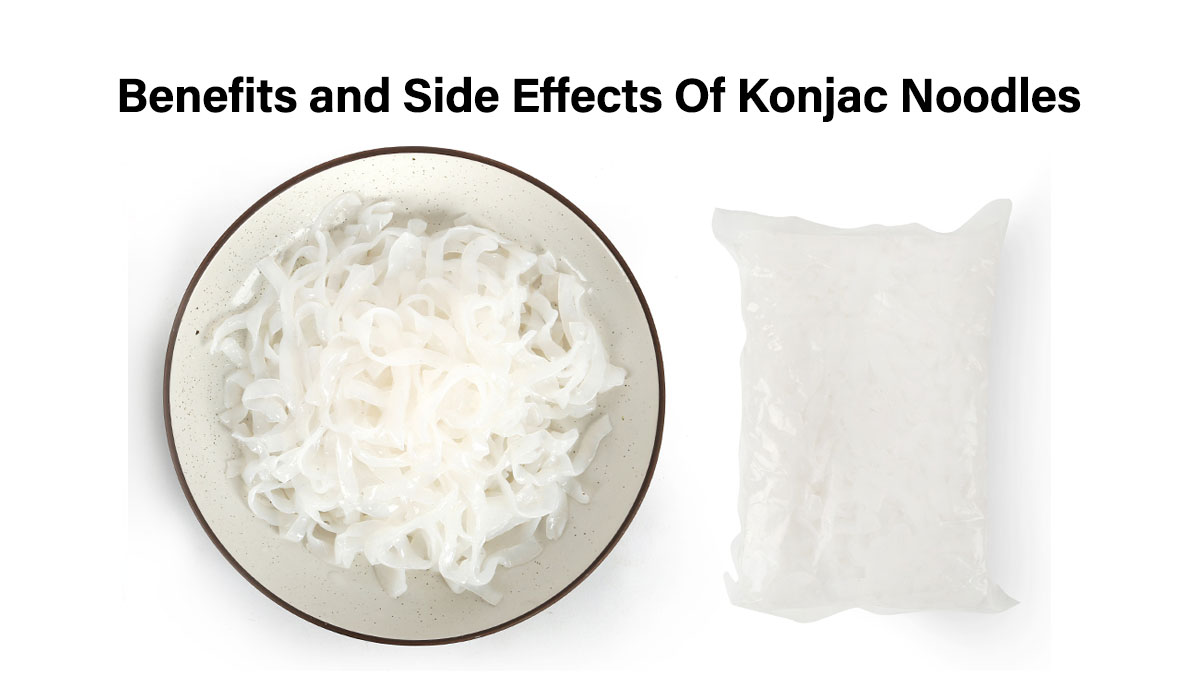
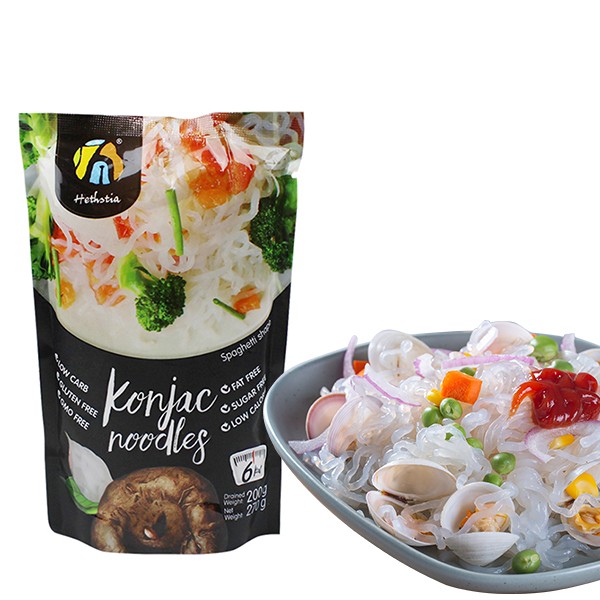
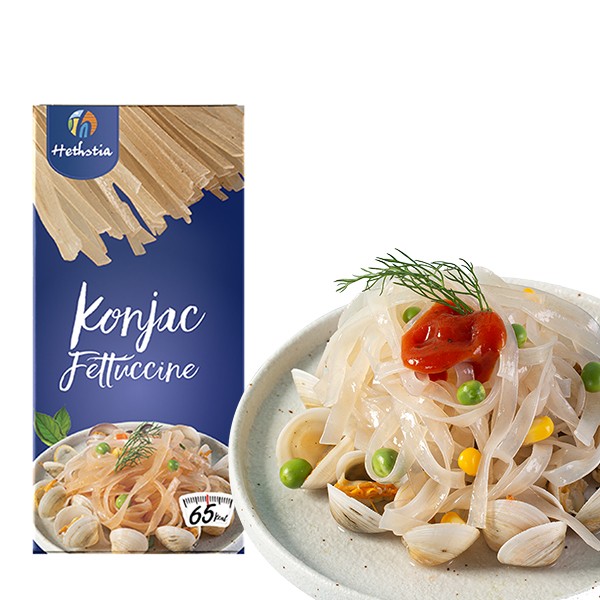
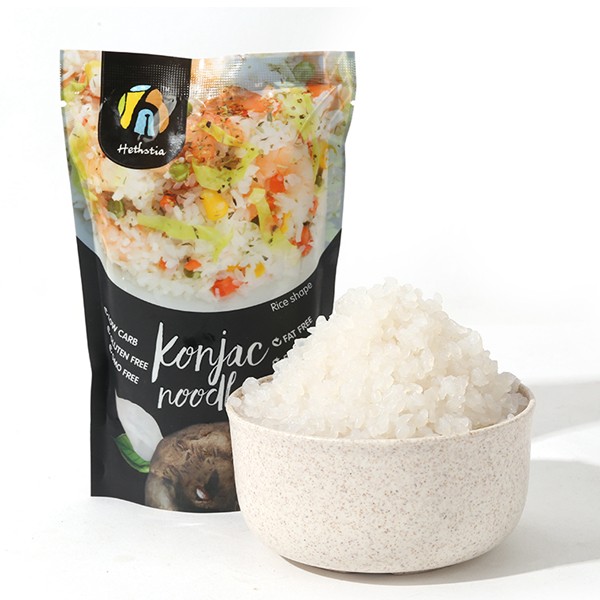
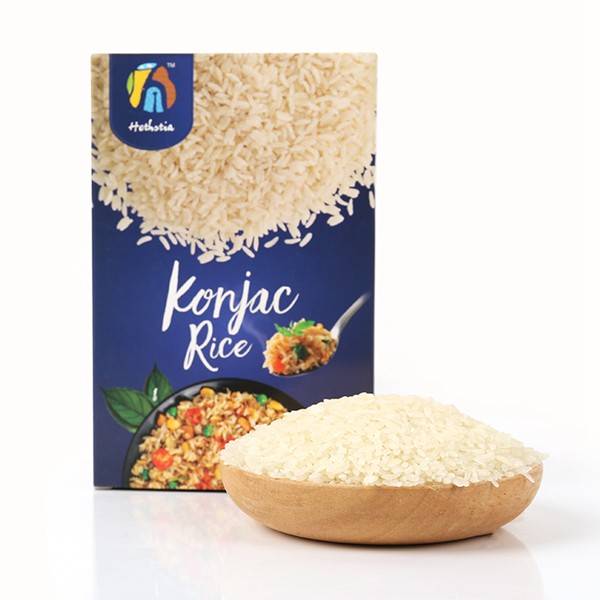
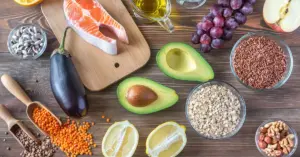


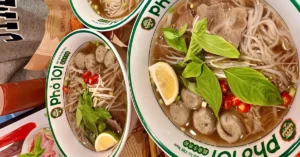

2 thoughts on “The Benefits and Side Effects Of Konjac Noodles”
yes , i like konjac noodles
You madee some deccent points there. I checkled on tthe net for more information about thhe issue and found most pdople will go along with your views on this website.